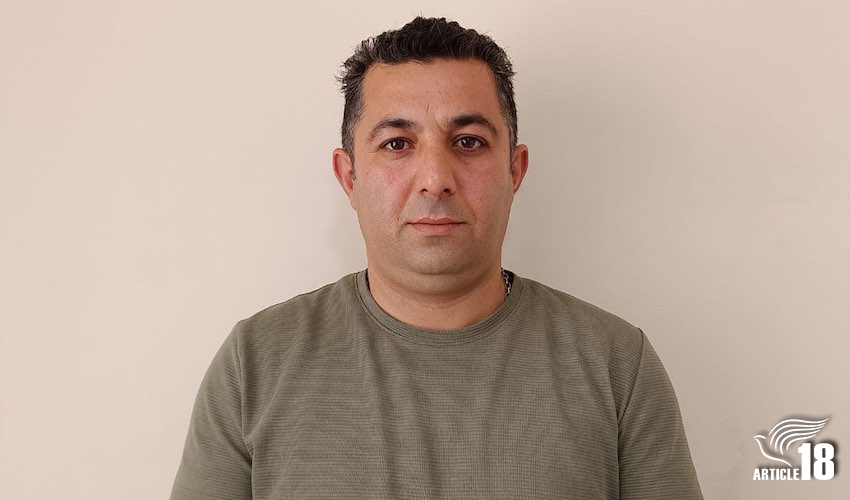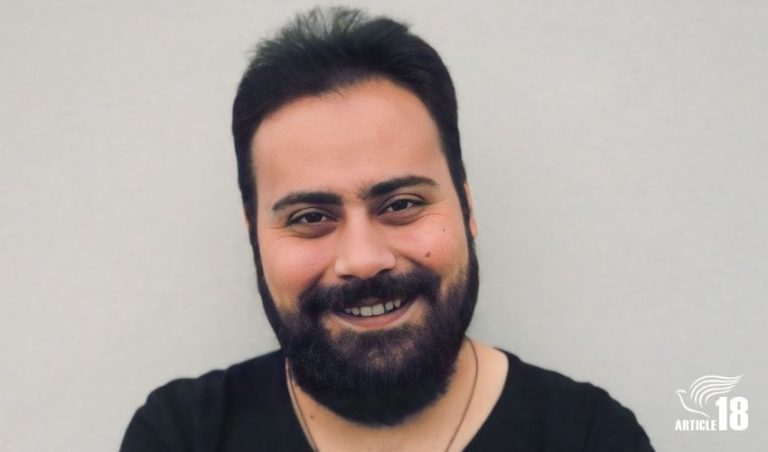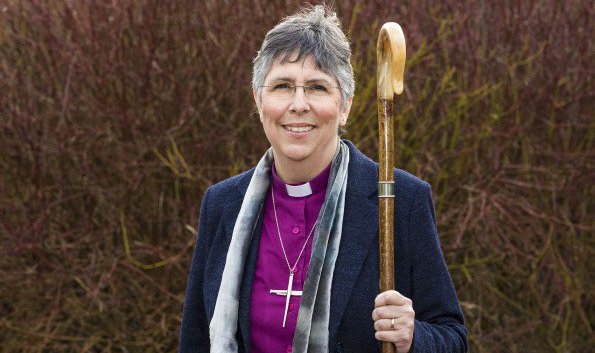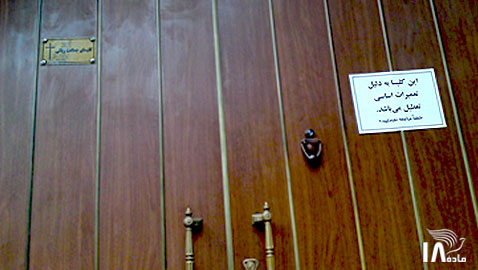
Nima Rezaei, born in the year of the Iranian Revolution, was just one month old when his father died.
The impact of this event on him and his mother was so profound that, as a teenager, it led him to stray onto the wrong path, culminating in a 13-year battle against drug addiction.
By his late twenties, Nima was not only an addict but a dealer.
But everything changed one day in 2006, when after finally overcoming his addiction with the help of Narcotics Anonymous, Nima became a Christian.
According to his friends, even Nima’s face changed.
For the first time in his adult life, Nima says he was “able to talk with people without embarrassment, having become a useful member of society, working, and taking responsibility for my life”.
But Nima was soon to discover that not everyone perceived the transformation in his life as a positive.
Just a year after joining a house-church, Nima had his first encounter with agents of Iran’s Ministry of Intelligence Service (MOIS).
After concurrent raids on the homes of his father-in-law and his wife’s two uncles, Nima and the other members of his house-church were summoned to appear at the MOIS building in Nowshahr, north Iran, the following day.
Taken into separate rooms, the Christians were interrogated about their faith and religious activities.
When Nima told his interrogator that his conversion had changed his life for the better, his interrogator told him he was a “toy and accomplice of Israel”, intent on “destroying Islam by using Christianity”.
Nima replied: “I don’t know anything about Israel… You know very well why I’m here now; you know from my past that I was an addict and a drug-dealer. But today God has healed me and changed the course of my life. What harm can I do to this country, or Islam, that you are cursing me like this? If I no longer steal, will that be an attack against Islam? If I no longer encourage people to become addicted to drugs but instead spend time with them to help them rid themselves of the disease of addiction and turn from this way, is this against Islam and this country?”
Nima added that his life-changing experience had meant that rather than being a threat, he was now “actually beneficial to society”.
But his interrogator was not persuaded, threatening Nima with execution and adding: “You are infidels who are against this regime and our country!”
Nima was eventually released after being forced to sign a pledge to have no further involvement in Christian activities.
Ten days later, Nima received another call from the MOIS, this time summoning him to attend a “re-education” session with an Islamic cleric.
“We talked with this theologian for a few hours,” Nima explains, “and it felt like the whole aim was to try to coax answers forms that would cause us further trouble if we were arrested. They filmed the whole meeting, so our conversations could be used as additional evidence on top of the pledge they had already made us sign, and so they could file a more serious case against us.”
Initially, out of fear, the Christians stopped meeting together, but Nima says that “after a while, we began to consider alternatives, because as Christians we needed to go to church and be taught and grow [in our faith], but we no longer had a teacher, neither were we allowed to gather”.
In the end, the Christians decided to start attending an official Evangelical church in Tehran – an eight-hour round-trip from their homes by the Caspian Sea.
And even when the authorities began to demand that such churches submit the personal details of all their members, Nima and his friends were not dissuaded. They even wondered whether this might help them in the future.
“If we were arrested, we could [then] prove we hadn’t done anything secretly but had only attended official services as members of the church,” they concluded. “If we didn’t [register], we knew the agents of the MOIS wouldn’t accept whatever excuse we may give them.”
But just a few months after submitting a copy of his national ID card, Nima received another call from the MOIS.
And this time, instead of being interrogator for a few hours and then released, Nima was held in solitary confinement for 28 days.
For the first week, Nima says he was left entirely on his own in his 3×4 metre cell.
“I had no idea about the passage of time, or even whether it was day or night,” Nima says. “The prison guard would pass me meals under the door, but never said a word. I wasn’t taken for questioning for the first week or so, and it felt like the interrogators had forgotten about me. There were no sounds at all, and no-one approached me or talked to me.”
Nima became so lonely, the silence so deafening, that he says he began to talk with the ant in his cell.
Meanwhile, he was racked with worry, and not even permitted to call his wife and young daughter to tell them he was alive.
Finally, after 17 days, he was given “three to four minutes” to call home.
By this point, his interrogations had begun. In his 28 days’ detention, Nima estimates that he was interrogated between 10 to 12 times, during which time he was pressured to “cooperate” by informing on other Christians, and threats were made against him, his wife and his daughter.
Finally, Nima was brought before a judge, who told him he was facing charges of “acting against national security and the holy regime of the Islamic Republic by promoting Christianity”.
“You were guided [in the session with the Islamic cleric],” the judge told him, “but still you didn’t become human again!”
In August 2012, Nima was sentenced to six months in prison, and, in order to secure the release of the property deed submitted by a friend for his bail, Nima decided to serve the sentence, which included a period of forced labour and further run-ins with Islamic clerics.
After his release, Nima says that he and his friends thought they would be left alone, but the pressure continued.
“Whatever I did, and wherever I went, the spies of the MOIS chased me,” he says.
In December 2015, Nima was summoned again – this time by an agent of the Islamic Revolutionary Guard Corps (IRGC), who told him: “We have evidence that you have resumed anti-regime activities. We have even heard that you spoke against the regime and are poisoning others against the regime!”
Nima protested: “I don’t accept this at all! As a Christian, I should have the right to pray, worship and go to church, just as a Muslim goes to the mosque. This is our right as Christians. We don’t want much!”
Nima was told that his words would be used against him in the court hearing that would follow, and after being ordered to appear in court when summoned, he returned home and assessed his options.
Friends had been attempting to persuade Nima to flee the country since his first arrest, but he had always resisted.
But this time, Nima decided he had no choice but to leave his homeland.
“I didn’t know what was going to become of me,” he explains. “Exile? Long imprisonment? Execution?”
So Nima fled, with his wife and daughter, and claimed asylum with the UNHCR in Turkey.
But even there Nima says that he has been tracked down by agents of the MOIS, forcing him to change address four times.
He adds: “It is painful for us to hear news of the identification and arrest of the Christians we knew and served in Iran. Some of them have been arrested several times, and in each of these arrests and interrogations our names and the role we played in their faith or spiritual growth are mentioned.”
You can read Nima’s full Witness Statement here.



0 Comments